OUTWARD BOUND STORIES: STEVEN MITCHELL
This story is a part of our “Outward Bound Stories” Series. Photography by Saskia Kahn and interviewing by Dareise Jones. Find the rest of the series here.
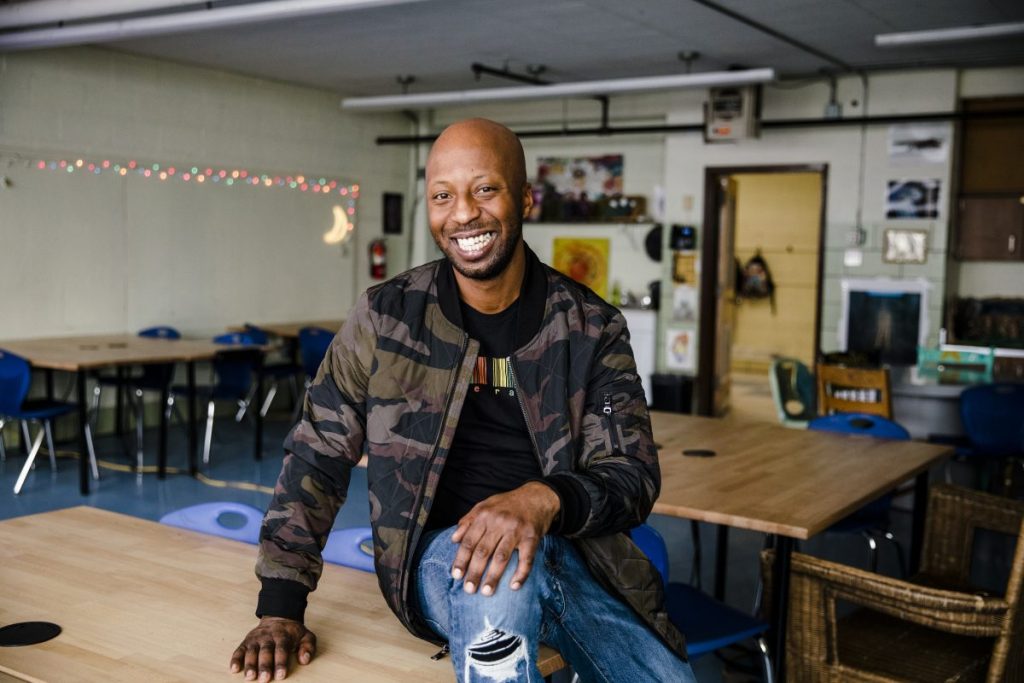
I grew up in Baltimore. It’s interesting because I grew up in Baltimore County, and when I traveled to different places like New York or Atlanta and people would ask me where I’m from I’d say Baltimore and they would think of the city. When people here would ask me what area I’m from and I’d say Baltimore, they would say you are not from Baltimore, you’re from Randallstown.
It’s always been an interesting dynamic for me, being here versus being other places it was always challenging sometimes to find my own identity.
I think it was a good challenge for me because when I got to high school, Randallstown was more of that type of school where I was introduced to, if there is such a thing, a Baltimore type of person, and I never really fit in there.
I think the whole public school model just didn’t work for me. I was more suited for a Montessori type of learning program because I was more independent and into artistry and would have benefitted from subjects like math being taught in different ways.
I’ve had to put things together like a puzzle to fit my life and who I am, and it’s great because now that I’m a technology teacher at a Montessori school I can take part and witness how different teaching techniques can help students thrive.
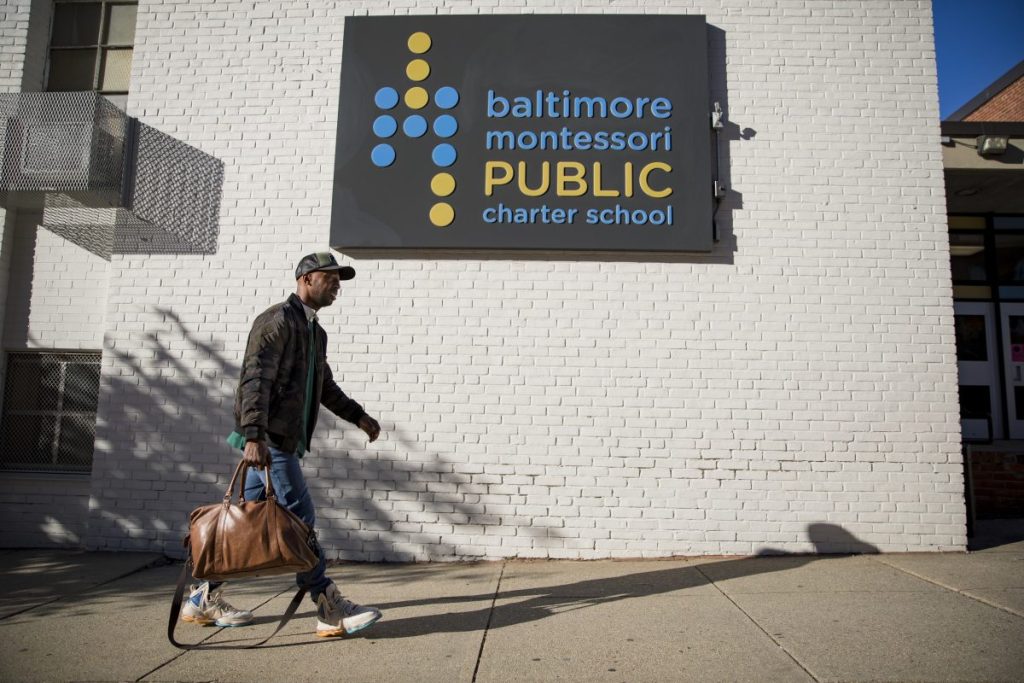
I grew up in a family where it was just my mom raising me, my brother and two sisters. We lived in a two-bedroom apartment, and it was a very challenging dynamic. From the outside people would think everything was fine because we lived in Randallstown, but on the inside I knew we were struggling.
We used to get food stamps, we had a cat to catch all the mice that would get inside of our home, and I witnessed substance abuse.
I grew up with many of the negative components that you might associate with different geographical areas, but they didn’t have the ramifications that they may have had in other settings.
I believe it’s because I had people who were on the wrong path telling me that it wasn’t my path. I also saw the consequences of their choices and that was enough for me to be like ‘God, I don’t think I want to try that’.
When I started ninth grade at Randallstown High School, I was not ready socially. My mom would drop me off at school, and when she drove away, I would walk back home or get on the train and go all around Baltimore city.
I came back to school because I wanted to play basketball. I played and things ended up being great socially, but terrible academically.
My mom decided to move us to Owings Mills, a better area, but I ended up dropping out of school. My mother then gave me an ultimatum: take the GED test or leave her home, so I got my GED.
After getting my GED, I attended CCBC, a community college in Baltimore County and I started teaching.
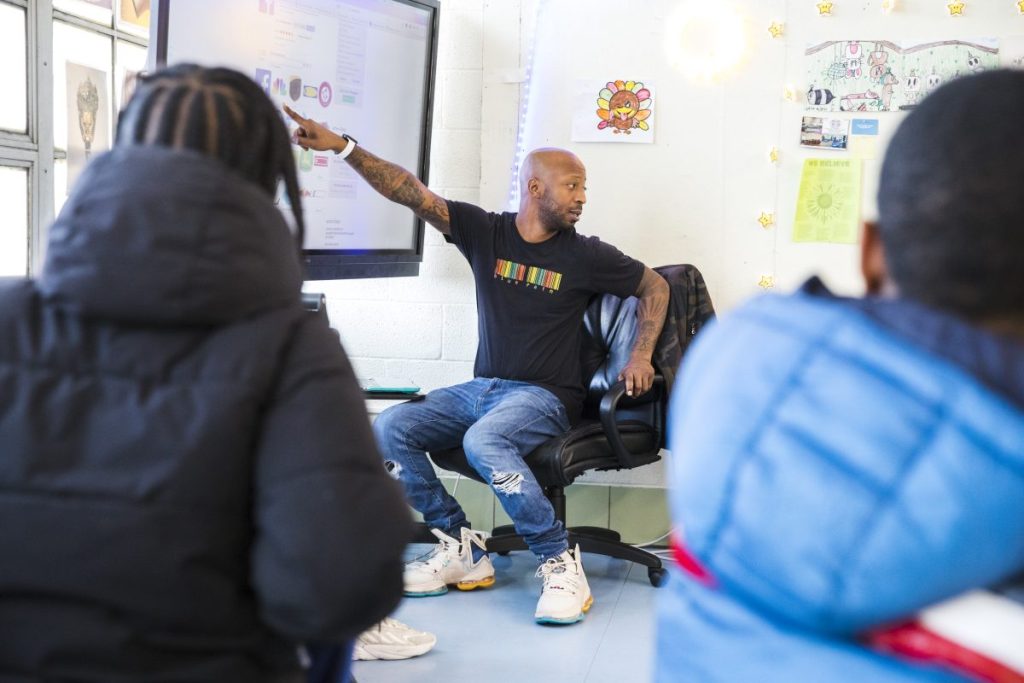
My pastor gave me my first opportunity to teach. I worked at a school named Junior Achievement and taught students how to manage their finances and run their own businesses.
In order to teach, you have to learn, and that was the most intriguing part in my journey as a teacher, how much you get to keep learning.
Though I loved teaching and learning, I wasn’t making enough money, so I was going to drop out of college.
I had a plan. My aunt worked at Social Security, so I thought she may be able to help me get a job there, or I was going to sell drugs.
I had already called a friend of mine and I was going to buy the drugs from him. I can’t believe I was thinking about doing that now, but at one time that was a conceivable plan.
Before I acted on either of those plans, I met with a counselor at CCBC, that I still keep in contact with today. She was from New York, and she asked me what I wanted to do.
I told her I wanted to teach, but not with a chalkboard. I wanted to market my lessons to my students. I also told her I would love to work in television, but I didn’t think I could do that. I can’t believe that I was thinking that way then, but I hadn’t seen enough to believe that I could do it.
She told me about several film programs for underserved students and with her help, I got accepted into a film program in New York through the Tribeca Film Festival, that was sponsored by Robert De Niro.
Nothing in my space was working anymore, so I needed to make a change. Sometimes if you don’t make a change, change will be made either for you or around you.
So, I packed up and went to New York. The program was very intensive and hands-on. On the first day we were thrust right into working and learning how to shoot films. I was in the program for two years before the funding started to run out, so I decided to come back home.
That experience taught me that more was available to me and that I could create opportunities for myself.
I started working for Apple, left there and taught design and digital storytelling at Coppin State University, and I started my own media company, Blue Rain World.
Years later, I started teaching at my daughter’s Montessori school because a lady that I knew from my church saw me leaving one day and told the principal he needed to bring me on to teach there.
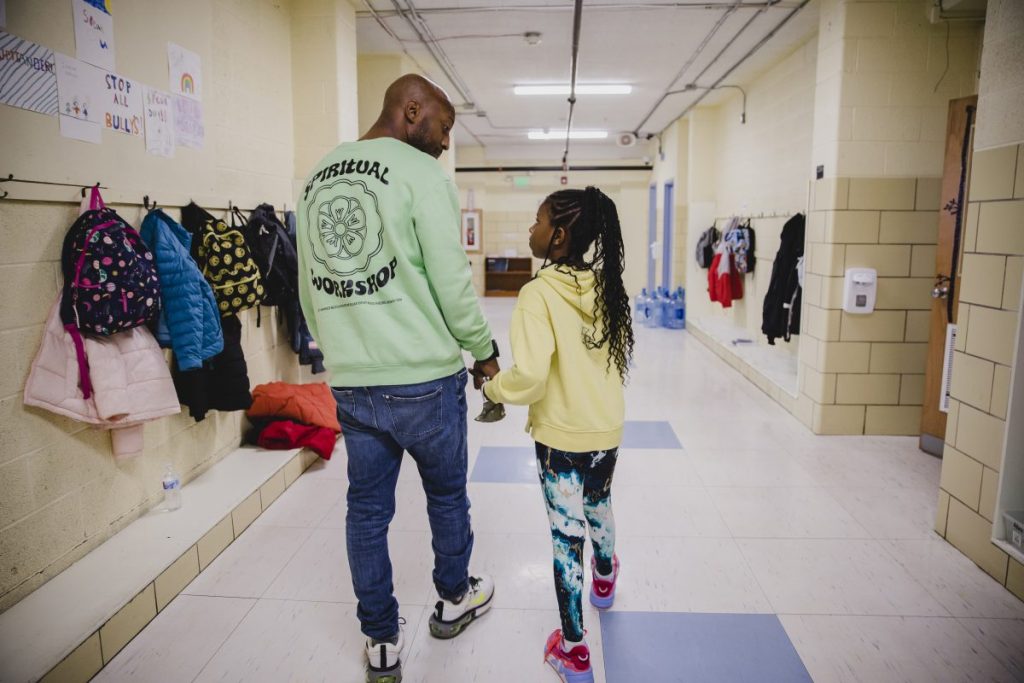
From that point on, I started working part-time with the sixth, seventh and eighth graders. My role expanded to a full-time tech teacher, and then they asked me to go on an Outward Bound expedition with my students.
I’ve done three Outward Bound expeditions so far, and the first one was with eighth grade students I had been working with for over two years, so we had built a great rapport.
I’d never been camping before and most of my students hadn’t either, so we were learning and overcoming the challenges together.
During that first expedition, my comfort zone was completely changed regarding the things that were important to me. The top priorities became making sure we had food, shelter, and strength to hike each day with our heavy backpacks. Every moment was accounted for. There were no wasted movements. I learned that it was about tactical survival.
It was tough, but what made it special is that we went through it together. We learned how to survive out in the cold together.
The second expedition was amazing. We went on one of the first in-person expeditions to take place after COVID, so students were excited about the experience.
The tough part about that is, and I’m still coming to grips with this, a student that probably experienced the greatest amount of growth and fulfillment during that trip ended his life five months later during the first week of school.
In the last part of his obituary, there was a whole section about how Outward Bound changed his life. The Outward Bound trip he took completely changed his outlook on life and when I saw that, I cried tears of joy and tears of sorrow. I cried tears of joy because it warmed my heart to know that that trip was so impactful and helped to bring out the leader in him. I cried tears of sorrow because his loss was tragic and devastating.
Throughout that trip, my students thanked me and expressed their love and gratitude for me being there for them and helping them grow.
During the last night of that expedition, we lit a fire, and everyone had to figuratively put something important into the fire that they wanted to let go of.
I think I came to terms with not having the relationship with my father that I wanted, because when I saw who was to my students, and I realized that what I was looking for, I had become.
My third expedition was very rough because the weather was awful. The first couple of days it was 40 degrees and it rained nonstop. On the second night we didn’t prepare for sleep, we just fell asleep and woke up soaking wet.
We made it through those rough days by looking out for each other and focusing on getting through it the best way we could. We kept our tents close together and we survived it. We shared blankets and parts of our ponchos if someone’s poncho was dry. We learned how to help each other survive.
Thank God the next day was amazing. The weather started getting way better and the rest of the trip wasn’t as tough. Although those first few days were brutal, it was something that built a lot of character for all of us.
Outward Bound has given me so much and my experiences with the program help me to keep showing up for my students because we went through and overcame challenges together. We also learned the importance of taking things one step at a time to reach our goals.
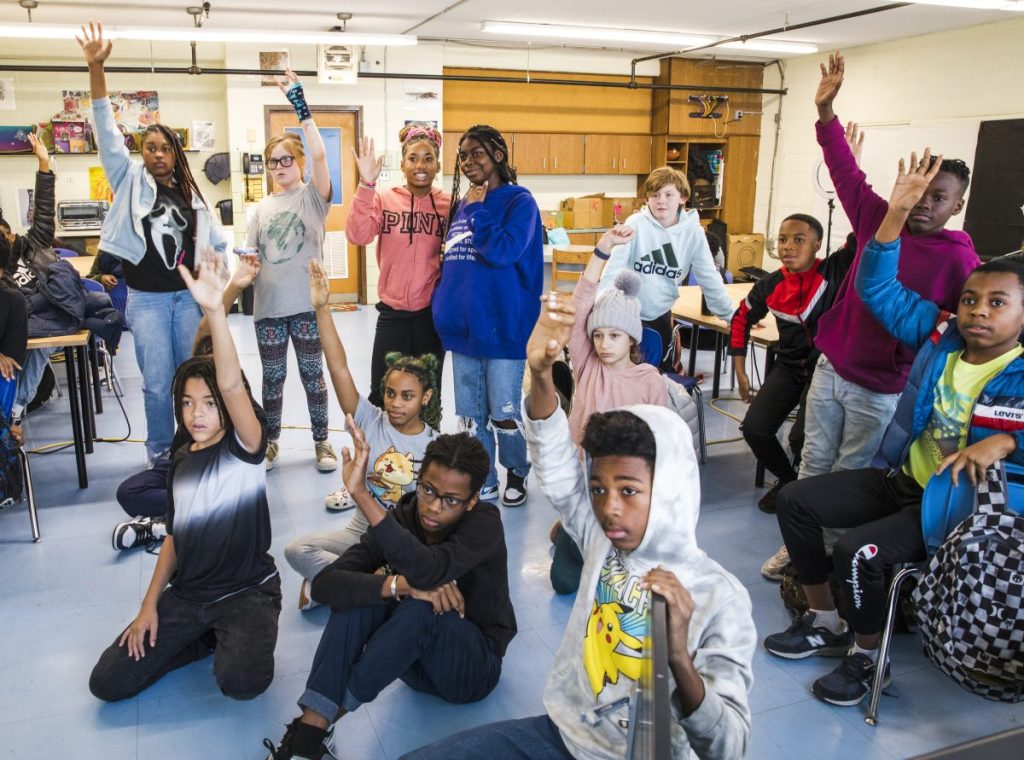
One of the most important lessons I learned and share with my students on expeditions and in the classroom, is to visualize where I’m going to see myself later on down the line.
When I went on the second and third trips with Outward Bound, on Monday, I was thinking about completion on Friday, and I know completion on Friday means you’ve got to put one foot in front of the other foot on Monday, constantly. Then on Tuesday, constantly, and every day after that.
I tell my students I know how bad the backpack hurts on your shoulder. I know how thirsty you are. I know how much it sucks to have your shoes and your socks wet, and we’ve got to hike five more miles, but I also know what completion feels like on Friday and the impact that it leaves on you for the rest of your life.
That is one of the things I remind my students of when they are struggling: remember to just keep taking one step, and then another toward your goal, and imagine how you will feel when you’ve accomplished what you set out to do.